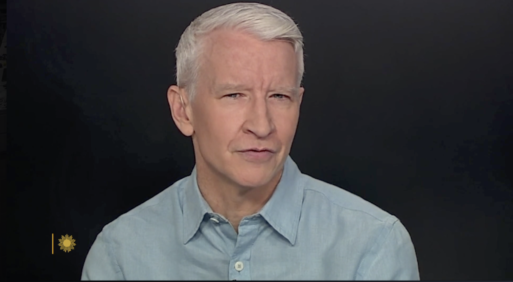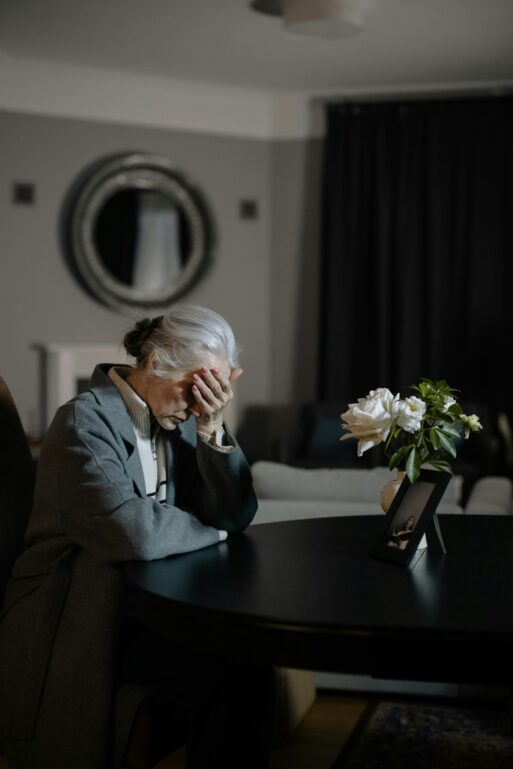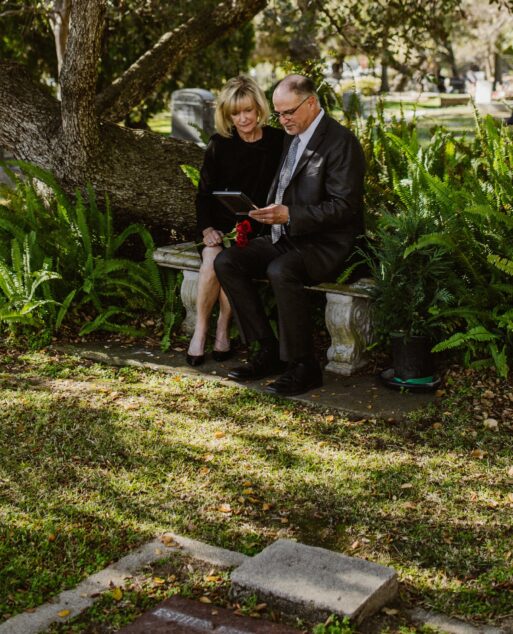
Anderson Cooper spoke candidly about the “burden of grief” on CBS “Sunday Morning.”
Most of us are taught not to burden others with our troubles, especially when it involves death. But as CNN anchor Anderson Cooper attested in a recent guest commentary on CBS “Sunday Morning,” not sharing grief compounds the pain of loss. And Cooper has had more than his share.
Cooper related that he lost his father when he was 10, and his 23-year-old brother committed suicide 11 years later. In 2019, he lost his mother, who was the last of his family. Despite these heart-wrenching losses, he kept his grief to himself.
“Why is it so hard to talk about?” he asked viewers. “Why must we keep it hidden away, crying in private, speaking the names of our loved ones in hushed whispers only we can hear? I’ve done that my whole life, and the price I’ve paid is high.
“When you bury your grief to mute your sadness, you mute your ability to feel joy as well. You can’t have one without the other, and I see that now,” Cooper acknowledged.

Grieving alone can take a toll.
Credit: Cottonbro Studio
Bottled-up Emotions are Toxic
Suppressed grief can also lead to physical ailments, according to Asma Rehman, LPC.
Writing on her blog “Benefits of Talking About Grief,” she noted that failing to process grief causes a person to experience “incomplete grief,” which allows extreme emotions to fester internally.
“So, when the expression of grief is inhibited,” she wrote, “the bereaved often find their grief has manifested physically instead.” She listed stomach issues, nausea, sleep problems, muscle aches, lack of energy, and headaches as ways grief can manifest physically as well as emotionally.
If opening up is difficult, she encouraged people to start by sharing pieces of their story until they feel safe enough to say more. She also gave people permission to “cry or react however you need to.”

Sharing grief with someone who understands what you’re experiencing leads to healing.
Credit: RDNE Stock Project
Seek Out Others Who Understand Your Pain
To help you unburden without feeling that you’re imposing on family members, Karyn Arnold, founder of Grief In Common, suggested that you seek out peers who have also experienced loss and understand what you’re going through.
“It’s about finding those who will listen to our grief story and show us that we’re not alone,” she wrote. “We’re not ‘crazy.’This loss happened and every day we’re trying to figure out how to process it. Sharing our story can help.”
To help initiate a conversation when someone is grieving but is reluctant to talk about it, there are a surprising number of games on the market designed to facilitate sharing. We tested a number of them a few years back and some of them were quite effective at starting conversations on a sensitive topic.
However it occurs, it’s important to share your grief. As Cooper concluded: “I’m not a fan of New Year’s resolutions, but this year I’m going to try and give up carrying my grief in silence. I’ve been doing that since I was 10 years old, and the weight of it is just too much to bear.”
Cooper also has created a podcast in conjunction with CNN, “All There Is with Anderson Cooper” in which he shares the stories of others who have experienced profound grief. The final episode of the current season aired on Feb 7, 2024.

 Anderson Cooper Knows the Value of Sharing Grief
Anderson Cooper Knows the Value of Sharing Grief


 How Dare You Die Now!
How Dare You Die Now!

 “Help Me, Helen”
“Help Me, Helen”














